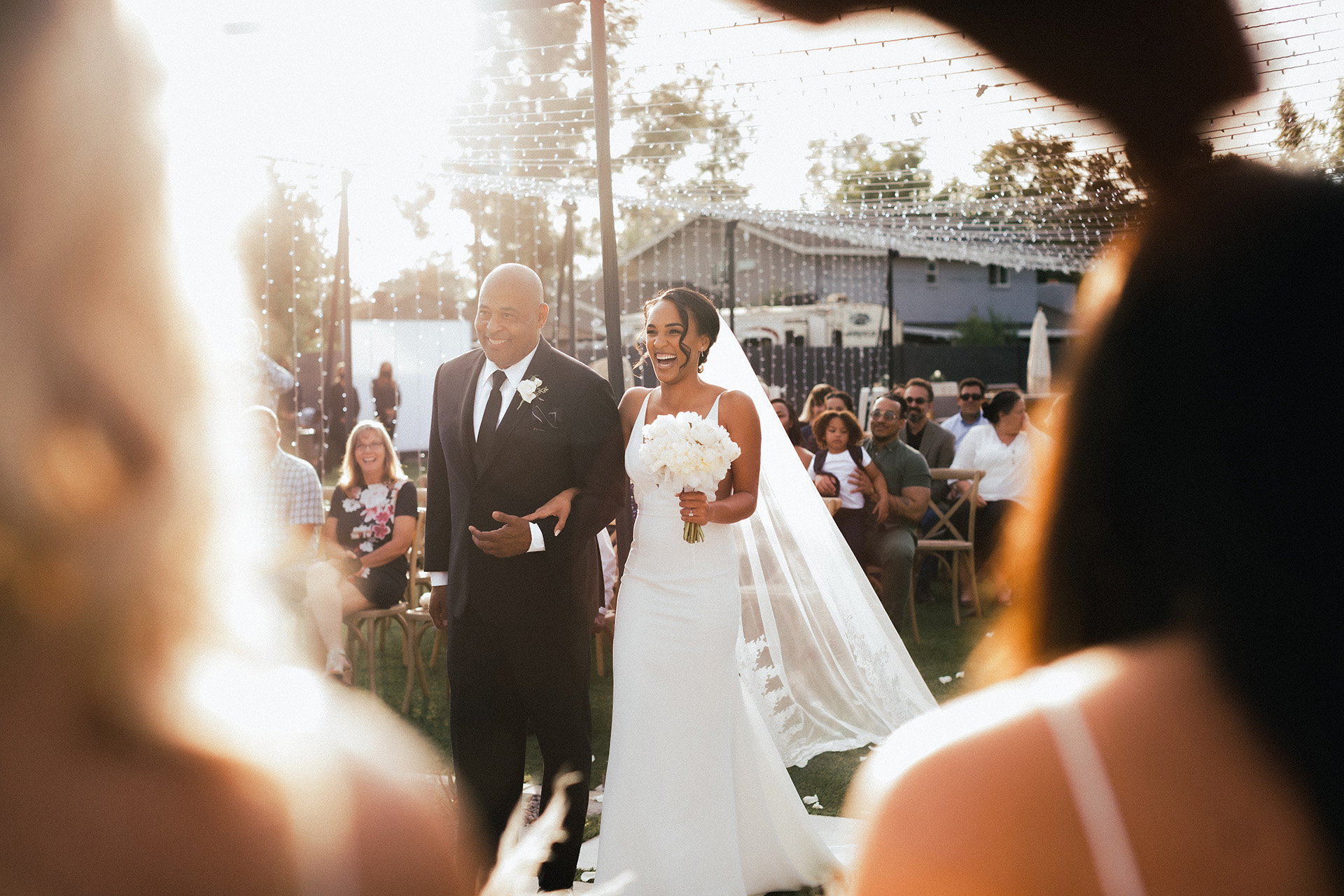Celebrating Black Love: Hosting a Juneteenth Wedding Celebration
 Juneteenth is an extremely important day, not just in Black history but in American history as a whole, as weddings and marriages were an aspect of everyday life that had long been denied to African Americans during slavery. But, it wasn’t only during the 89 shameful years of slavery, that weddings and marriages were illegal! Black weddings and marriages were also still heavily restricted long after slavery was abolished. So, in honor of the upcoming Juneteenth holiday we’re taking a closer look at the history of Black weddings and marriage in the United States
Juneteenth is an extremely important day, not just in Black history but in American history as a whole, as weddings and marriages were an aspect of everyday life that had long been denied to African Americans during slavery. But, it wasn’t only during the 89 shameful years of slavery, that weddings and marriages were illegal! Black weddings and marriages were also still heavily restricted long after slavery was abolished. So, in honor of the upcoming Juneteenth holiday we’re taking a closer look at the history of Black weddings and marriage in the United States
For Starters, What Is Juneteenth?!
For those who may not yet know, Juneteenth is a symbolic day that commemorates the emancipation of Black Americans from slavery in the United States of America. While the Emancipation Proclamation, a presidential proclamation and executive order that freed all slaves in the Confederacy, officially came into effect on January 1, 1863, the proclamation wasn’t announced or enforced at that time.
It wasn’t until June 19, 1865, in Galveston, Texas, that Major General Gordon Granger issued an official public order notifying the people of Texas that all slaves were free and that the Civil War was over. Unfortunately this news didn’t spread quickly, and many slaveholders didn’t take heed, and the few people who tried to comply with the emancipation order often found themselves in grave danger.
But the newly freed men and women in Texas, took matters into their own hands, and committed to marking and celebrating the date, June 19th 1865, as the official end to slavery beginning in 1866. But, it wasn’t until 1980 that Texas finally recognized the holiday and made Juneteenth an official state holiday, and once Texas made it official, 45 other states and the District of Columbia followed suit, by either establishing a state holiday or setting the date aside as a special day of observance.
And, bringing Juneteenth into the present, June 19th was first recognized as a federal holiday in only 2021! President Joe Biden officially signed the Juneteenth National Independence Day Act into law after the incredible efforts of activists Lula Briggs Galloway, Opal Lee, and others.
Embracing Traditions at Black Weddings:
Given the large number of countries and cultures from which the slaves originated, Black weddings have become a robust and far reaching collection of traditions and themes that have evolved along with the long journey to freedom. At their essence, American Black weddings are a celebration of love and history, and with them come some very powerful, meaningful rituals, which carry themes of unity, commitment and honor.
Taste The 4 Elements
This tradition is thought to originate from the Yorùbá culture of West Africa, and incorporates the tasting of four distinct flavors meant to represent the four distinct emotional “flavors” of a marriage. During this ceremony ritual, the couple shares the tastes of something sour, bitter, spicy, and sweet. This ritual is seen as a testament of the couple’s willingness to stay together “for better or worse.”
Libation Ceremony
In this traditional ceremony ritual, one of the family, and generally an elder, pours either liquor or holy water in each of the four directions (north, south, east, and west) to honor the couple’s ancestors as well as those who have recently passed. This elder then usually shares some wisdom, advice and finally a wedding blessing with the couple. Libation ceremonies have roots in many African cultures.
Jumping The Broom
As discussed earlier, during slavery, Black Americans were not legally allowed to marry. So, rather than an ordained minister legally conducting a wedding, slave owners or plantation foremen would fetch a broom and have the enslaved couple jump over it to seal their unofficial union. Jumping a broom was meant to signify their commitment to one another. And, though this tradition goes back to the beginning of slavery, it was re-popularized during the 1970s by the novel and miniseries Roots, which gave Black American a heart wrenching glimpse into their ancestors’ lives. Many still incorporate this tradition as an ode to their forefathers.
Tying The knot
In many African cultures, a bride and groom’s wrists are tied together with either cloth, rope, or braided grass during the marriage ceremony. Then an elder prays over the couple’s union for long life and till death do them part. The meaning behind this tradition is to represent eternal unity, and is similar to the Celtic tradition of handfasting.
Black Love Is Resilient and Enduring
Now more than ever, in this polarized political climate, it is important to highlight the voices, the relationships and the impact of Blackness in America and the entire world. Black Americans human rights have been hard fought for, and the fight continues today.
Here at Beat Train Productions we stand behind Black love, and Black lives and all that comes with them! We are grateful for the sacrifices of the Black ancestors that fought against injustice in the face of impossible odds, and that carried traditions forward for current generations to experience! Black love, and Black Joy, in all its forms, should be honored, protected and celebrated!



